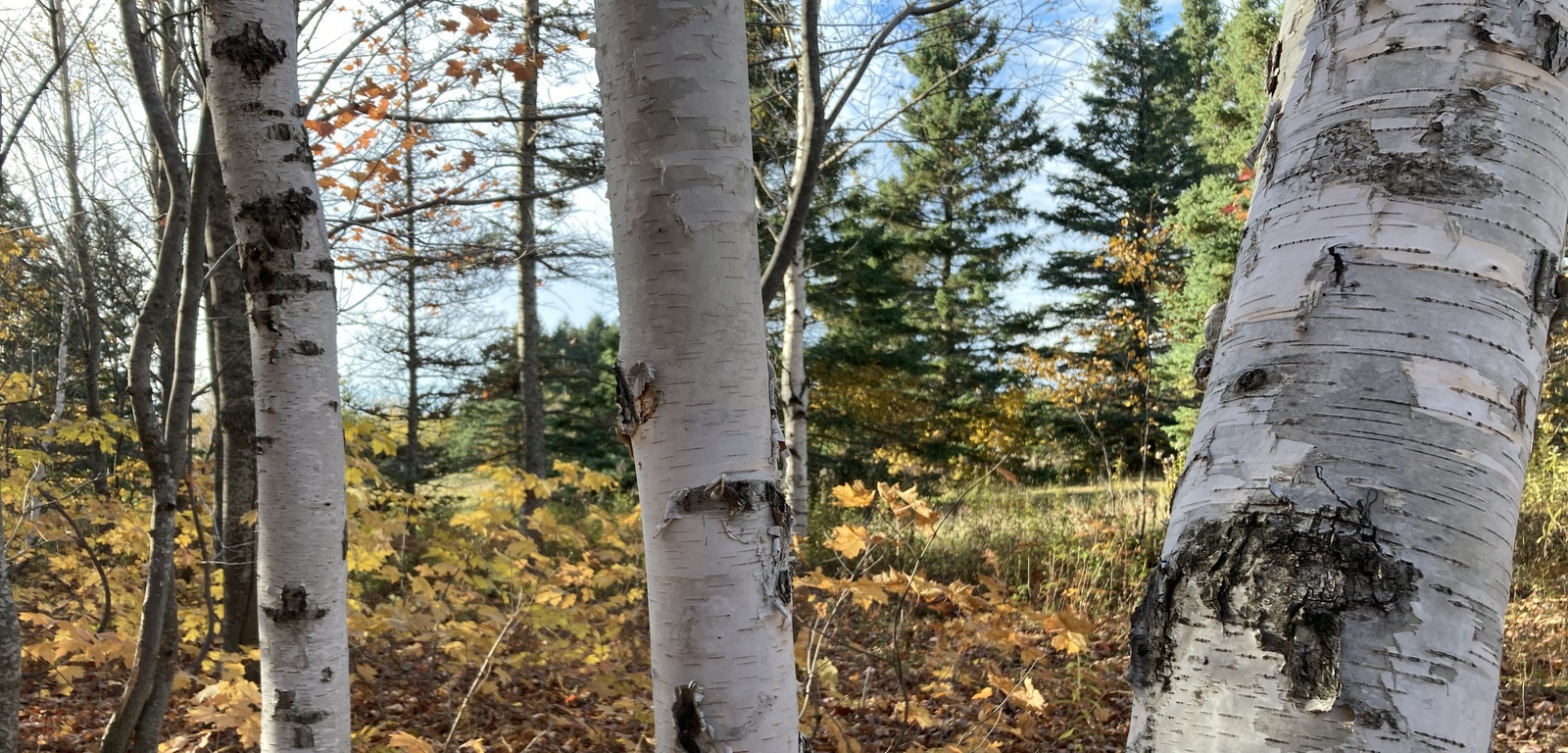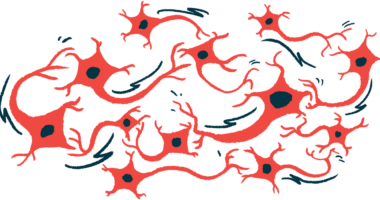Finding space for abundance in life, even while managing grief
I feel joy, but still grieve what we’ve lost and what we're still losing

I’m weary after 13 years with the ALS of my husband, Todd. I started therapy in hopes that I’d get some help. At our first session, I told my therapist that I’d like homework, such as a journaling prompt.
A couple sessions in, she pulled out a deck of cards with scenic pictures from our area. Each card featured a different word, such as Growth, Boundaries, Instinct, or Truth. On the back of each card was a related statement, which I could use as a journaling prompt.
“Look through the cards and then pick one,” the therapist said, “but don’t look at the back until you choose.”

Kristin Neva and her husband, Todd, used birch tree imagery in their wedding announcements and decor. (Photo by Kristin Neva)
I was drawn to a card with a birch tree on it because I love the tree’s white, papery bark. Todd and I incorporated it into our wedding announcements and decor, with scanned birch bark as the background for our invitations, a birch arch my dad fashioned for the sanctuary entrance, and white roses in heart pockets that my mom made from the bark of fallen birch trees, designed for the end of each pew.
When I walk or ski, I often pause to admire birch trees for their beauty, but the word paired with the birch tree card was Abundance.
Where is there room for abundance in grief?
I winced at the word. For much of my life, I’ve been part of a church culture in which people often quote the words of Jesus: “I am come that they may have life, and may have it more abundantly” (John 10:10). That’s how it reads in the King James Version. The New International Version translates the end of that phrase as “have [life] to the full.”
Some Christian speakers promise health, wealth, and happiness as a result of a life devoted to following God. Others acknowledge the suffering that’s a part of life in a broken world, but still promise peace, joy, and victory amid suffering.
But I don’t feel victorious as we live with Todd’s ALS. I watch his body waste away, helpless to prevent it. We can’t beat the disease, and I can’t shake my grief. I live with chronic sadness. My life doesn’t have the abundance I imagined.
I rejected the card and chose one with the word Truth.
In my last session, I paused again at the birch card. “Abundance,” I said, looking at the birch tree. “Maybe.”
“Why don’t you take that one?” my therapist said. “Last time you wanted nothing to do with it.”
I chose the card and turned it over. The back read, “Abundance is what you hold in your heart.”
Later, I wrote in my journal, “Abundance is what I hold in my heart. I hold on to love and beauty. Except when I’m stressed, tired, and burnt out.”
There are times when love and laughter well up within me, and I feel the joy of living life in this world, even with ALS. But when I think of the trauma we’ve gone through, and are still living through, I grieve what we’ve lost and what we’re still losing. My heart also holds pain and deep sadness.
I’m trying to hold some space for abundance amid this complicated grief.
Note: ALS News Today is strictly a news and information website about the disease. It does not provide medical advice, diagnosis, or treatment. This content is not intended to be a substitute for professional medical advice, diagnosis, or treatment. Always seek the advice of your physician or other qualified health provider with any questions you may have regarding a medical condition. Never disregard professional medical advice or delay in seeking it because of something you have read on this website. The opinions expressed in this column are not those of ALS News Today or its parent company, Bionews, and are intended to spark discussion about issues pertaining to ALS.








Victoria Morris-Ott
You seem to be speaking for me ... at 75, I'm in my 12th year of watching the decline. We were motorcycling in Vietnam (2012) when my husband didn't have the balance to keep his bike steady. He'd been riding for years. By 2014, when I turned 65, we knew we had to leave our teaching positions in Southern China. The pretty Korean girls working for the airline pushed him in a wheelchair while I dragged our luggage. We still thought it was his back..... In 2015, he was diagnosed. The bikes were long gone.
We had been sharing a house with my son and his family, so I had distraction and some help. 2020, they moved 7 hours away because their young kids could not go to school for fear of giving us COVID.
And now here we are -- married for 30 years. I still look like 60, but my body is giving out. Hired support does some of the lifting, and I am responsible for all the driving, all the planning and scheduling, and cooking .... it is like having a child in the house again. I've never been this age before.
People started talking about putting him in care -- I had a chance to go to Hawaii for 10 days. He went into care for 6, and I returned to a different man. He is despondent. I thought it through. No moving to be with family and upsetting his care and support here. No putting him in care. We are in this together.
Kristin Neva
Victoria, thanks for sharing your story. It is such a tough path we are on.